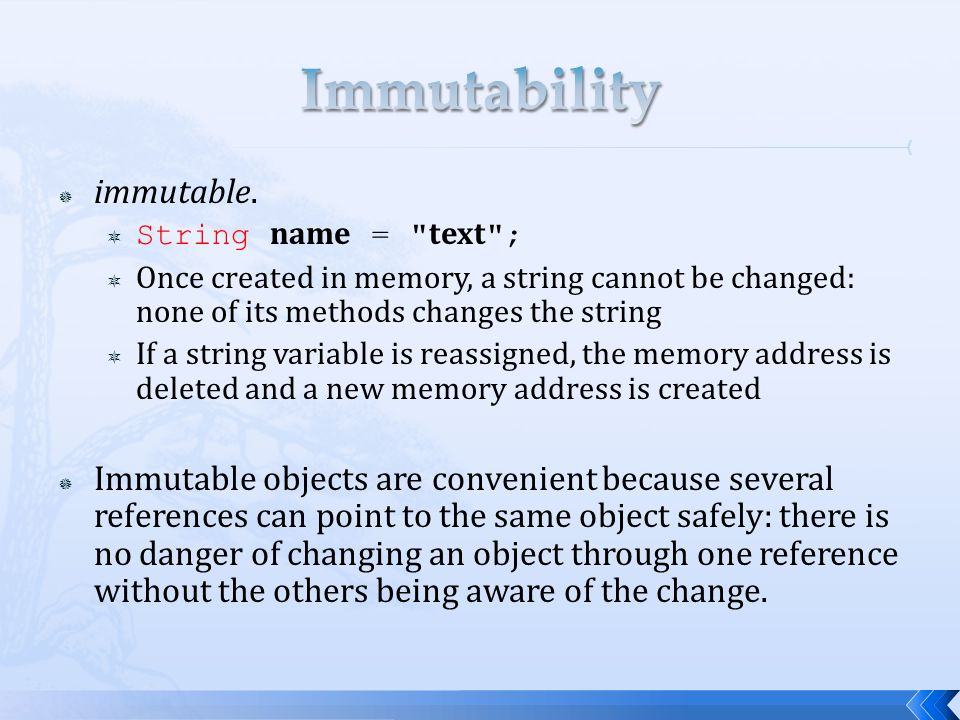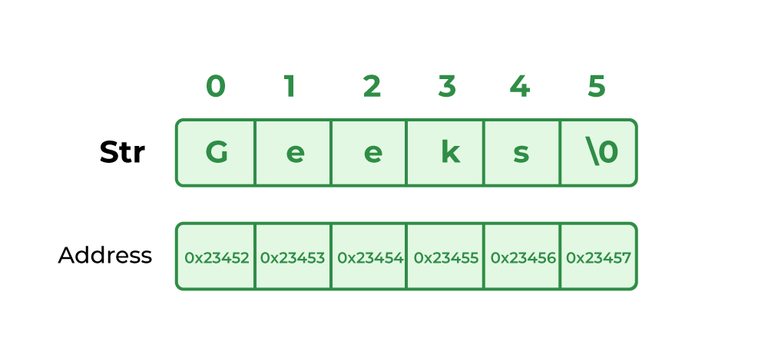The Advancement of Immutable String Handling: A Crucial Facet of Software Application Development
In the detailed world of software advancement, the handling of unalterable strings stands as a cornerstone that has undertaken significant development over time. From its modest beginnings to the complex challenges come across in early implementations, the journey of unalterable string manipulation has actually been an important aspect of software application design. As we browse via the historic landscape of this basic concept, tracing the developments, safety and security ramifications, and arising fads, we discover ourselves at a time where the intrinsic value of comprehending this advancement comes to be progressively evident.
Beginnings of Immutable Strings
The concept of immutable strings traces back to the early days of programming languages when developers looked for to improve the reliability and security of information taking care of mechanisms. Unalterable strings refer to strings that can not be altered after they are developed. This basic concept was introduced to resolve worries relating to information stability and protect against unexpected adjustments to essential info saved as strings.

Furthermore, immutable strings add to enhancing the general security of software application systems (Why are strings immutable in Java?). By preventing unauthorized celebrations from damaging sensitive string data, immutable strings assist minimize the threat of data breaches and unapproved accessibility to secret information. This fundamental idea remains to play a crucial function in contemporary shows languages and continues to be a keystone of safe and durable software application development practices
Very Early Obstacles and Solutions
Browsing the landscape of early software program advancement presented considerable obstacles in making sure the stability and security of data dealing with devices. One of the key difficulties in taking care of immutable strings was taking care of memory effectively. In very early systems, memory allowance and deallocation were hand-operated processes, bring about prospective memory leaks and susceptabilities. In addition, making certain that strings remained unaltered confirmed to be intricate, especially when several parts of the codebase needed to access and customize information.
To resolve these challenges, developers started implementing data file encryption methods to protect delicate info kept in immutable strings. Encryption assisted safeguard data from unapproved gain access to and adjustment. Furthermore, the intro of hashing algorithms provided a means to confirm the stability of unalterable strings by generating special checksums based on their contents. These checksums permitted for quick comparisons to determine if any type of modifications had actually happened. By including file encryption and hashing techniques into the handling of unalterable strings, designers substantially enhanced the safety and security and dependability of data within software systems.

Improvements in String Immutability
In software advancement, a notable advancement in the handling of unalterable strings has emerged with developments in information file encryption and hashing techniques. By utilizing secure hash algorithms like SHA-256 or cryptographic techniques such as AES file encryption, programmers can guarantee that delicate details stored in unalterable strings look at here continues to be tamper-proof and secure. These innovations have actually bolstered the stability and discretion of data within applications, specifically in markets where information safety is paramount, such as cybersecurity, financing, and healthcare.
In addition, innovations in string immutability have led the method for improved performance optimization. Unalterable strings permit more effective memory monitoring and caching strategies, reducing the overhead associated with constant string controls (Why are strings immutable in Java?). This optimization not just boosts the overall responsiveness of software program applications however likewise adds to far better scalability and source application
Security Implications and Finest Practices
With the foundation laid by advancements in string immutability, recognizing the safety and security implications and applying best techniques comes to be paramount in guarding delicate data within software application applications. Unalterable strings play a critical function in enhancing safety by stopping unauthorized adjustments to information, guaranteeing information stability throughout the application's lifecycle. By utilizing immutable strings, designers can reduce usual susceptabilities such as injection strikes, barrier overflows, and data meddling, which are usually exploited by harmful stars to endanger systems.
To boost safety and security additionally, ideal practices need to be complied with when managing sensitive information. This includes securing information at remainder and en route, implementing correct gain access to controls, utilizing secure coding practices, and regularly upgrading software program parts to spot recognized susceptabilities. Furthermore, developers need to comply with the concept of least benefit, making certain that only needed consents are provided to procedures and individuals. By including these article source safety and security procedures and finest practices into software growth procedures, organizations can better secure their data properties and lessen the risk of safety breaches and information leakages.
Future Patterns in String Handling
Amidst the ever-evolving landscape of software application advancement, the trajectory of string handling is positioned to witness substantial advancements and advancements. One of the crucial future patterns in string handling is the increasing concentrate on performance optimization. As software program applications remain to expand in intricacy and scale, the reliable handling of strings becomes crucial for preserving optimum efficiency. Developers are discovering brand-new formulas and information frameworks to boost the rate and effectiveness of string operations.
Additionally, one more pattern imminent is the combination of expert system (AI) and equipment discovering (ML) in string handling tasks. AI-powered tools are being established to automate and simplify various string manipulation procedures, causing boosted performance and accuracy in software development process.
Furthermore, there is a growing focus on improving the safety and security facets of string handling through progressed encryption methods and secure coding methods. As cyber threats remain to develop, making certain the integrity and discretion of data within strings is ending up being a top priority for programmers. By embracing durable safety and security measures, such as encryption at rest and in transportation, designers can minimize the risks related to string control vulnerabilities.
Final Thought
In final thought, the development of unalterable string handling has actually been a vital element of software application growth, starting from its origins to the improvements made in the last few years. Early challenges have actually been dealt with through ingenious services, resulting in enhanced protection methods in managing strings. It is essential for developers to remain updated on the most recent patterns in string immutability to guarantee Get More Information the robustness and safety of their software program applications.
Unalterable strings refer to strings that can not be changed after they are created. Why are strings immutable in Java?. By avoiding unapproved events from meddling with delicate string data, unalterable strings aid minimize the danger of information breaches and unauthorized accessibility to private details. By incorporating encryption and hashing techniques into the handling of immutable strings, developers dramatically improved the safety and reliability of data within software program systems
Immutable strings allow for a lot more efficient memory monitoring and caching approaches, minimizing the overhead associated with frequent string adjustments. Immutable strings play a critical function in boosting security by protecting against unauthorized modifications to information, making sure data integrity throughout the application's lifecycle.